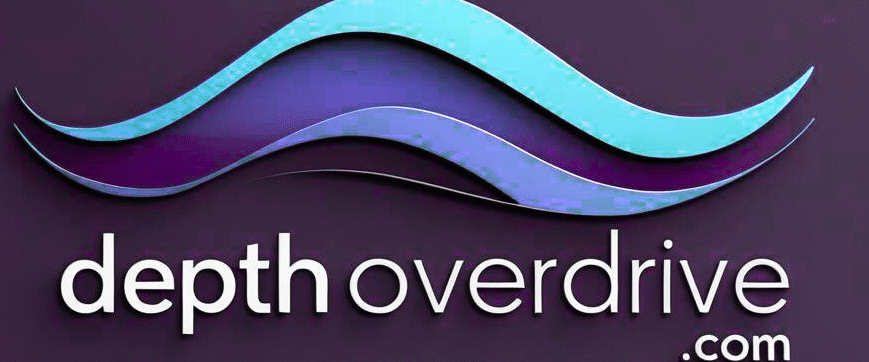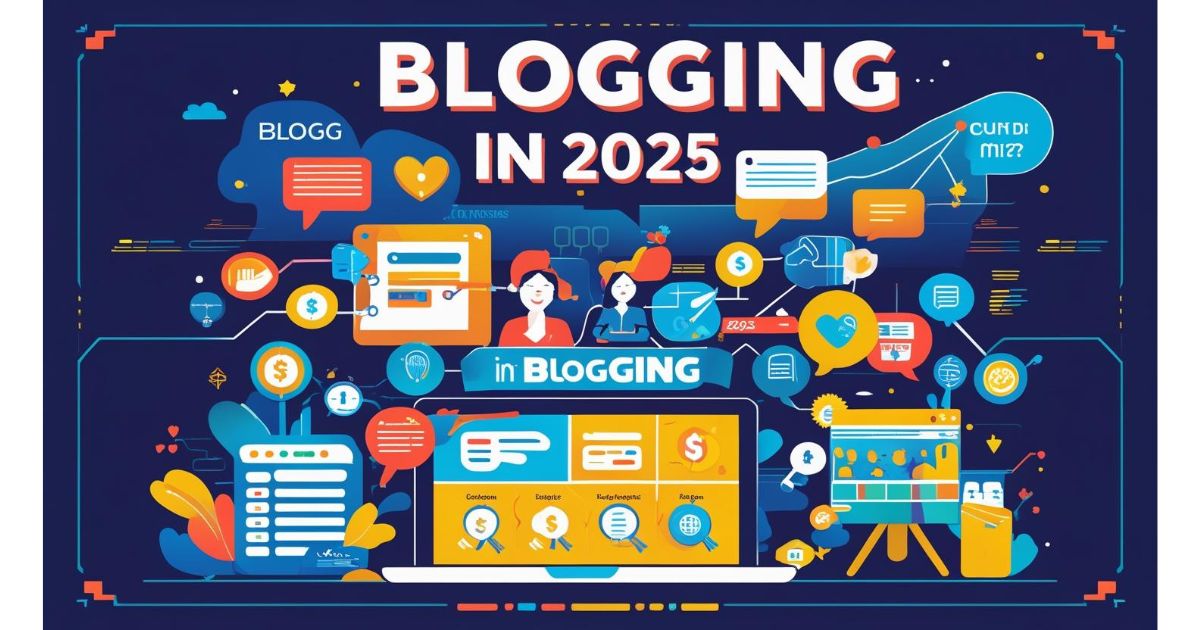Blogging has changed greatly in form, but its fundamentals have not changed. Blogging will have developed beyond the conventional idea of writing on a screen by 2025. It has evolved into a powerful instrument for online revenue creation, business expansion, and idea sharing. Today, blogs are pivotal in marketing, education, and entertainment. This evolution is not just in the writing itself but also in the systematic approach, relationship building, and developmental promotion.
Text, music, video, and interactive technologies are all combined in today’s blogs. They are based on vlogging technologies like YouTube or blogging platforms like WordPress and Blogger. The use of blogs has changed, regardless of whether you manage a personal or business site. Let’s examine blogging in its entirety in 2025.
What is Blogging?
What is blogging in 2025? It’s the act of creating and publishing content regularly on a weblog, usually in reverse chronological posts. But blogs are no longer just diary-style entries. They’re part of a bigger world of online content creation.
Whether it’s sharing blog content in a specific blog niche like travel, tech, or wellness or running a blogging business, today’s blog is a hub for stories, opinions, and solutions. A blog niche is an area of interest or topic that your blog concentrates on. Bloggers use blogging tools, content calendars, and SEO blog strategies to keep their blogs active and useful.
How Blogging Works
How blogging works is simple at first. You write a blog post, publish it online, and share it with others. But behind the scenes, it involves a lot. Bloggers need to plan content, do keyword research, promote posts, and track their success.
They use content management systems like WordPress. Many follow a blog setup checklist that includes picking a domain name, installing WordPress hosting, designing the blog, adding essential plugins, and creating a content calendar for regular updates. It’s a full process that turns readers into followers.
Blog vs. Website: What’s the Difference?
What is a blog vs a website? The answer lies in purpose and structure. A blog is dynamic. It focuses on regular content creation, while a website is often static. Blogs include long-form content, guides, and blog updates.
Websites focus more on information and services, while blogs are made to build engagement. They are also ideal for blogging for business and content marketing. These days, a lot of websites have a blog section to increase SEO traffic and retain visitors.
The Benefits of Blogging: Why It’s Important in 2025
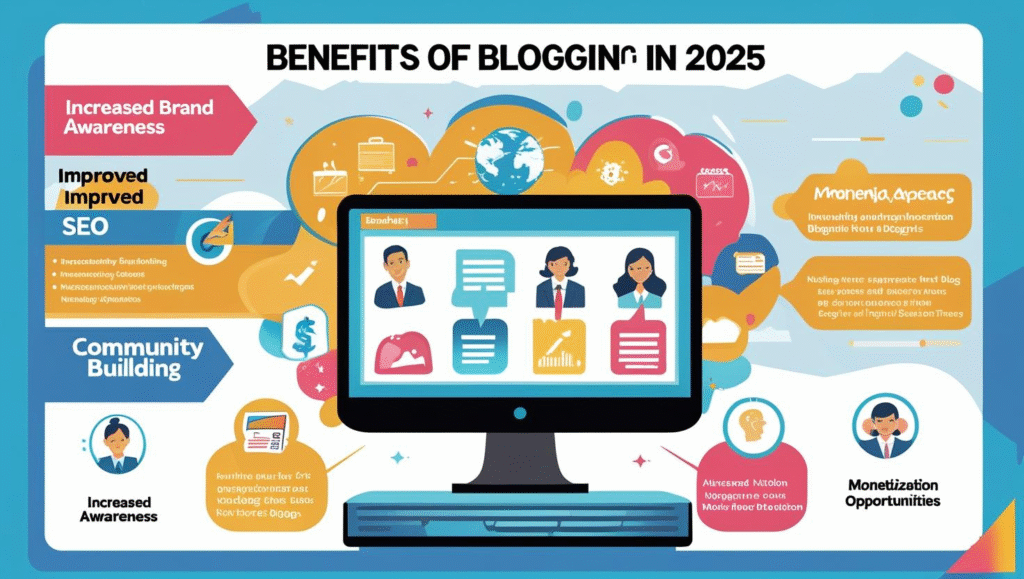
In 2025, blogging will have many powerful benefits. It’s a powerful tool for audience engagement, self-expression, and personal branding. You can sell, inspire, and educate through blogging. There, you can share your voice and establish a connection with a global audience.
Blogging facilitates blog monetization as well. You can make money with sponsored content, Google AdSense, or affiliate income. A blog helps brands establish a relationship with their customers and maintain open lines of contact.
Types of Blogs You Can Start Today
In 2025, you can start any blog. Popular blog niche ideas include health, tech, finance, food, and fashion. But new topics like AI tools, remote work, and sustainable living are rising.
Some people start a lifestyle entrepreneur blog, while others focus on digital entrepreneurship or video blogging. There’s room for everyone as long as your content strategy is strong and focused.
Blogging for Business vs. Personal Blogging
Blogging for business is goal-driven. It helps with blog promotion, traffic generation, and lead conversions. Businesses use blogs as tools to educate and sell.
Personal blogs, on the other hand, are more about expression. They focus on diary-style entries, opinions, and stories. Both types need strong reader engagement to succeed.
Pros and Cons of Blogging (2025 Edition)
Let’s look at the pros and cons of blogging. The pros include creative freedom, building a brand, and earning passive income. Blogs are also a smart way to show expertise and grow trust.
But there are downsides. Blogging takes time. Time-consuming content creation, delay in results, and the need to constantly update can be hard. Still, for many, the benefits outweigh the effort.
Pros Cons
Make online income. It can take time to earn
Build personal branding. Needs regular updates
Boost SEO Traffic May face content competition
What You Need to Start a Blog (Basic Requirements)

To start a blog, you need a few basics. Choose a domain name, get blog hosting, and pick your blogging platform. WordPress is a favorite because it’s powerful and flexible.
Next, you need a theme, some essential plugins like Yoast SEO for optimizing your posts, and a plan. Many use a content calendar, blog setup checklist, and blogging tools like Canva for creating visuals or Grammarly for proofreading to stay organized. Consistency is key to success.
Best Blogging Platforms (Free & Paid Options)
There are many of the best blogging platforms. Some are free, like Blogger or Medium. Others are paid, like WordPress.org, Ghost, and Wix. The right one depends on your needs and goals.
Free platforms are good for beginners. But if you want to scale, use WordPress with WordPress hosting for full control. Many successful blogs use it to grow their brand and revenue.
How to Start a Blog: Step-by-Step for Beginners
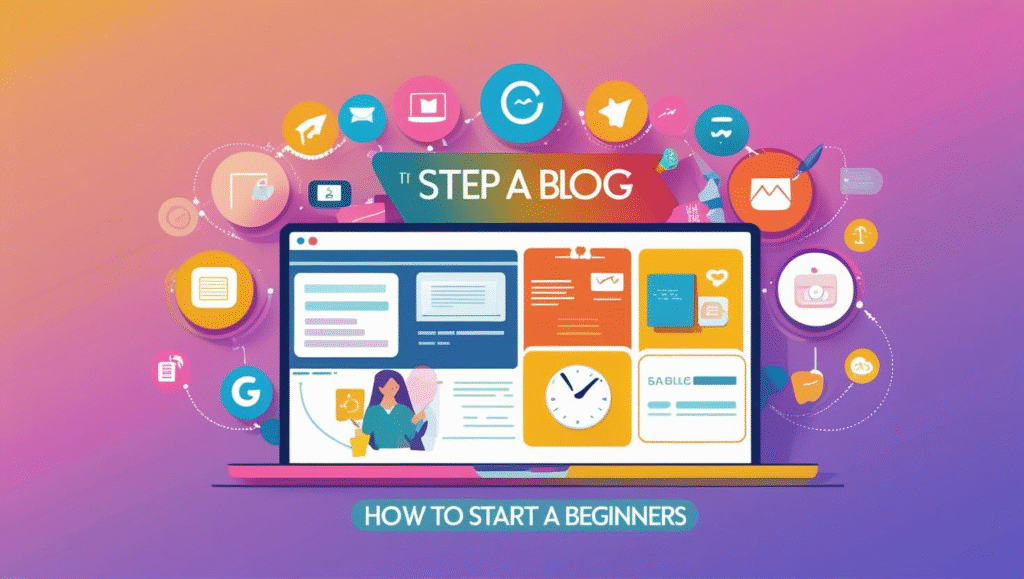
Want to know how to start a blog? First, pick your blog niche and research your audience. Then, get your domain name and hosting.
Next, install WordPress, design your site, and write your first blog post. Use writing tips for bloggers to keep it clear and helpful. Once live, promote it and start tracking traffic.
Blog Content Strategy: How to Plan and Write Blog Posts
Your blog content strategy matters. Plan posts around user needs and keyword demand. Create an editorial plan with a blog calendar to stay consistent.
Focus on long-form content, ultimate guides, and fresh content for SEO. Use interlinking and optimize every post with a clear goal. Good planning leads to strong results.
How to Rank Higher on Google Using SEO for Bloggers
SEO is key to blog traffic from SEO. Learn to write for users first, then for Google. Use proper headings, meta descriptions, and internal links.
Use keyword research tools to find what people search for. Then, write content that answers those questions. A strong SEO strategy brings more readers over time.
How to Get Your Blog Noticed and Develop a Following
Techniques for promoting blogs are crucial. To reach more people, use email newsletters, Quora marketing, and social media marketing. Wherever your audience congregates, share your material.
Also, try blogger outreach, joining the blogging community, and repurposing content for videos or reels. Promotion turns a good blog into a visible one.
How to Make Money from Blogging in 2025
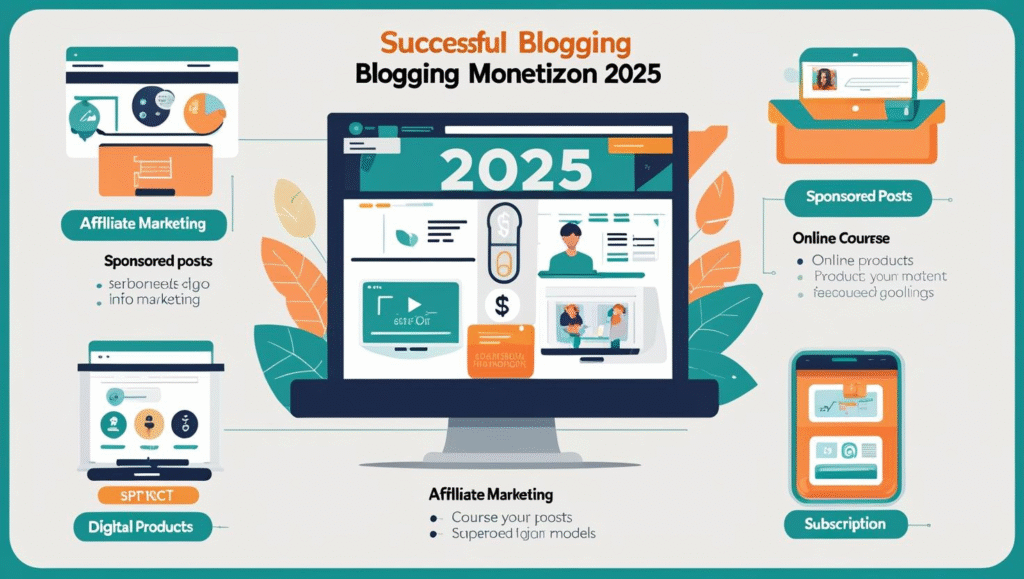
Can blogging help you make money? Yes. Bloggers earn from affiliate marketing, Google AdSense, sponsored posts, and selling products. Many even offer services or digital downloads.
This year, new ways like Private Label Rights (PLR) content, coaching, and memberships are growing. Pick the right blog income streams based on your blog type and goals.
Beginner Blogging Mistakes to Avoid
There are common traps for new bloggers. Skipping SEO, writing without research, or giving up too early are top mistakes. Some also ignore the value of a content calendar.
Don’t copy others. Build your voice. Use blogging tools, update content often, and engage with readers. Avoiding these mistakes will lead to faster blogging success.
Conclusion
Is blogging still relevant in 2025? Absolutely. Whether you’re a brand or a solo creator, blogging gives you power. It builds trust, drives traffic, and brings income. With the right tools, mindset, and effort, blogging becomes more than just writing — it becomes your platform.
So, what is blogging in 2025? Now you know: it’s your ticket to connection, expression, and growth in the digital world.
FAQs:
1. In 2025, will blogging still be worthwhile?
In 2025, blogging will still be worthwhile. Paid posts, Google AdSense, and affiliate marketing are among the greatest methods to develop your brand, expand your audience, and generate online revenue. For guidance, recommendations, and advice, a lot of individuals still prefer to read blogs.
2. Is it possible for novices to start a blog and earn money?
Definitely! Anyone can start a blog, even without tech skills. With the right blog setup checklist, blogging platforms like WordPress, and a solid SEO strategy, you can grow traffic and earn from blog monetization methods like digital products or affiliate income.
3: What makes a blog successful in 2025?
A successful blog in 2025 has high-quality blog content, a clear blog niche, and consistent blog updates. Using tools like a content calendar, writing helpful posts, promoting them on social media, and building strong reader engagement is key.
4: How long does it take to see results from blogging?
Typically, it takes three to six months before actual blog traffic and results appear. Blogging is a sustained activity. Consistency, fresh content for SEO, and good blog promotion techniques are necessary to build trust and rank on Google.
5. What is the best platform for inexperienced bloggers?
For most beginners, WordPress is the best choice. It’s flexible, powerful, and works well with many blogging tools. You can start for free or use WordPress hosting for more features and control. Other easy platforms include Wix, Squarespace, and Blogger.
Welcome to Depthoverdrive,
I’m Syeda Naqvi, a passionate SEO content writer with 3 years of experience in crafting engaging, optimized, and reader-friendly content. I specialize in creating content that not only ranks on search engines but also provides real value to readers, with a strong understanding of keyword research, on-page SEO, and content strategy.
